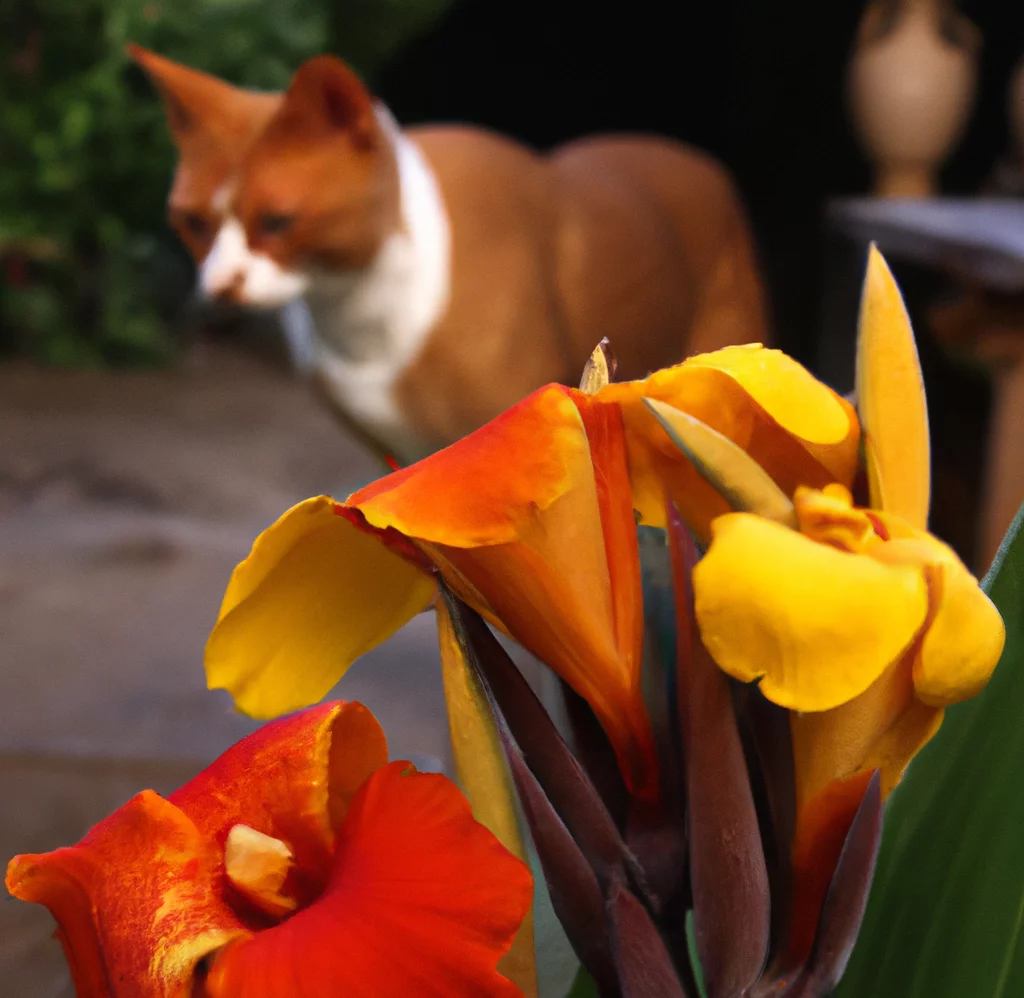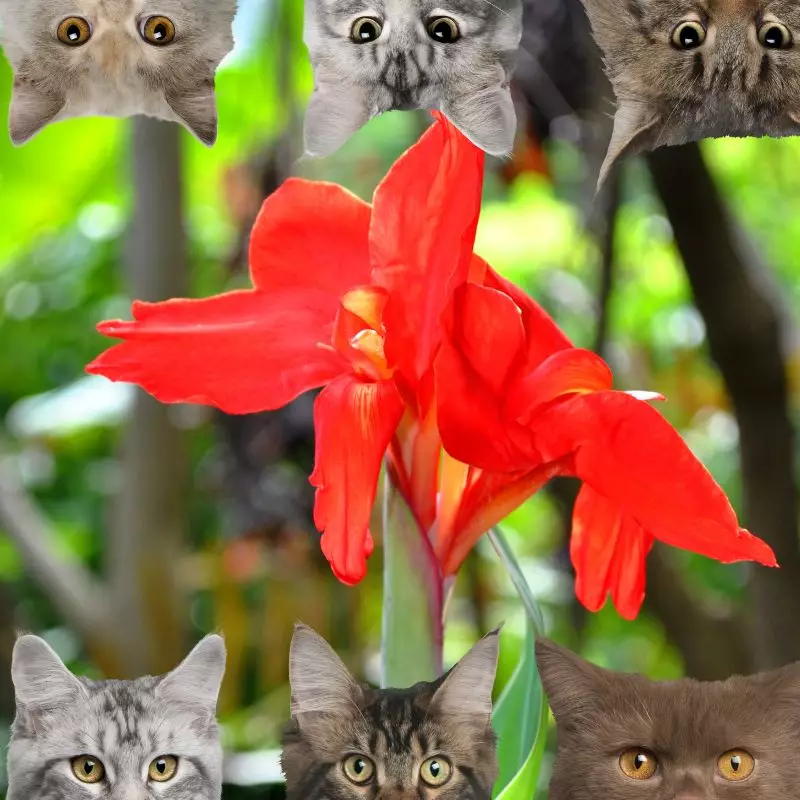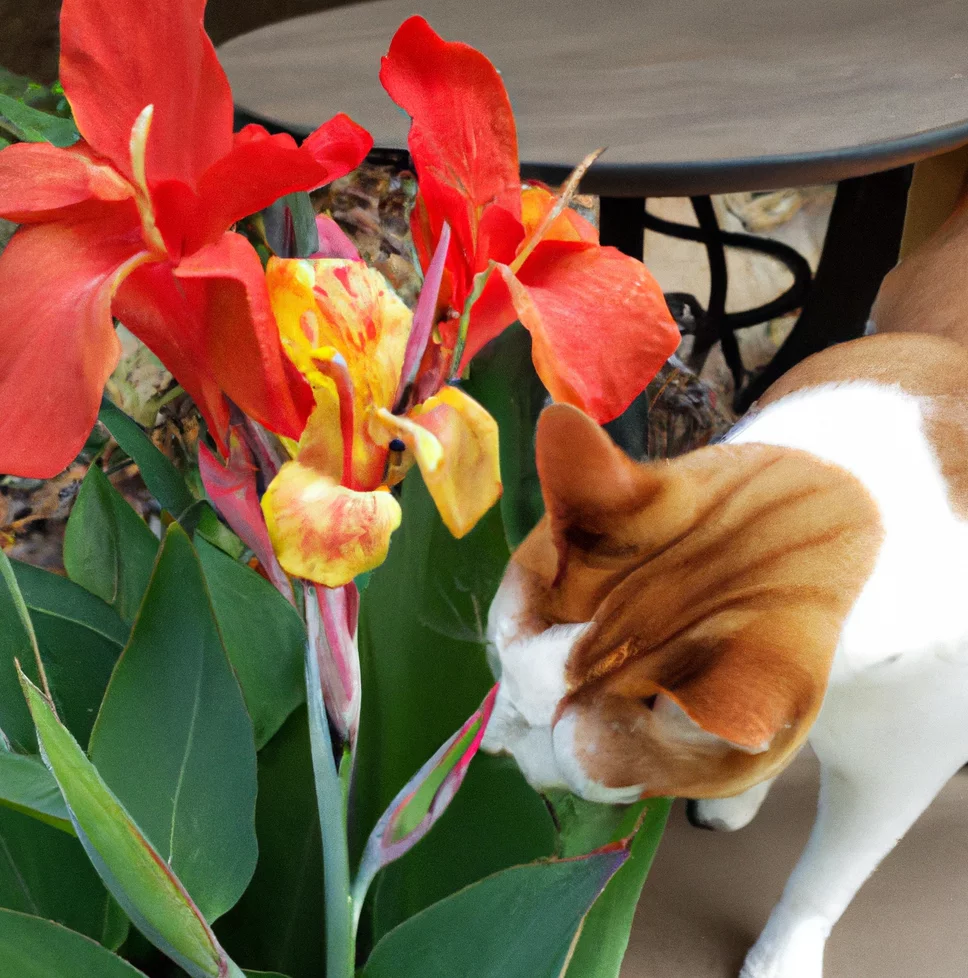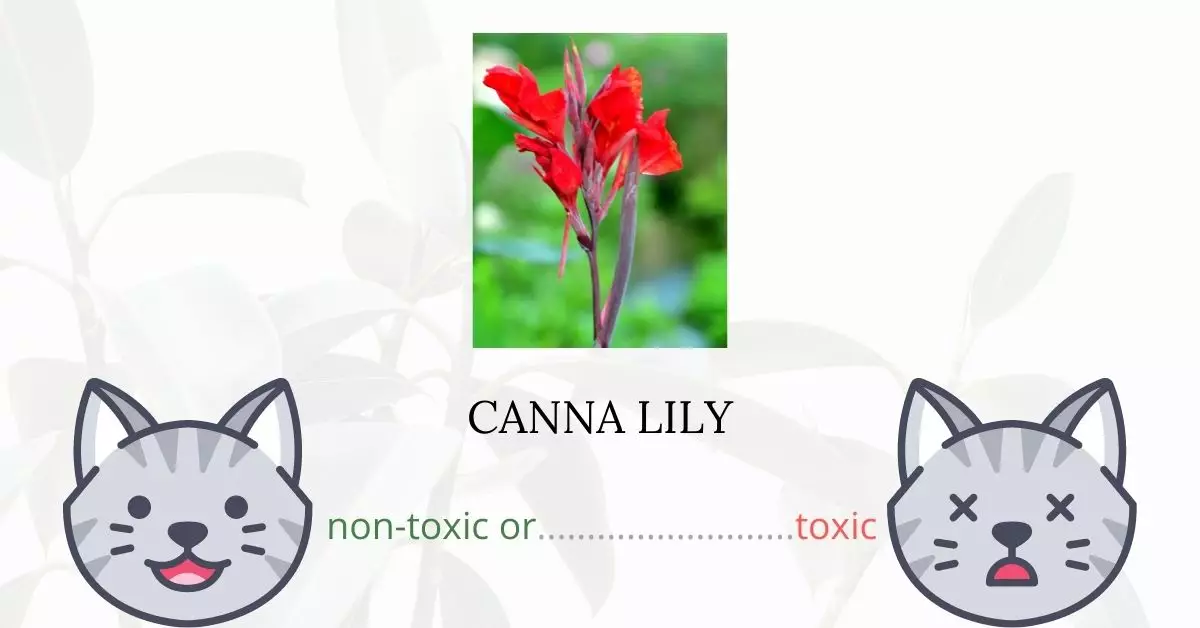The straightforward answer to whether Canna lilies are toxic to cats is no; Canna lilies are an exception to many lilies known for being harmful to pets, making them a safer alternative for gardens that are frequented by felines.
To ensure the accuracy and reliability of this information, this article has been meticulously written in collaboration with a team of experienced Doctors of Veterinary Medicine (DVMs). Their insights allow us to present precise and current information on the potential risks and effects of various plants, such as Canna lilies, on cats. Moreover, to augment our understanding and to validate our data, we have consulted reputable sources like the American Society for the Prevention of Cruelty to Animals (ASPCA) and PetMD, ensuring our readers receive the most trusted and credible information available.
Though Canna lilies are non-toxic to cats, dogs, and horses, the subsequent concern for cat owners might be their suitability for cat consumption, which we will explore in detail in the following sections of this article.
Can Cats Eat Canna Lily?

Canna lilies are not toxic compared to other lilies, so a nibble will not kill your cat. Some cats appreciate it, while others have an unfavorable reaction to it.
Cats are carnivores, which means they can’t digest plants since their digestive tracts are too short.
Although a small taste of your canna lily will not harm your cat, if they consume too much, negative consequences may occur.
What is Canna Lily

Canna Lily is a perennial herb that can grow up to six feet tall and is very massive. Canna generalis is the scientific term given to all Canna hybrids. Whether used as an accent or in bulk planting, they will draw attention to any garden. They have enormous colorful flowers and foliage that look tropical. The color of the foliage and flowers varies by cultivar.
Canna lily is a hybrid plant native to North and South America, as well as India. It has been widely cultivated and has spread far beyond its native range. It is commonly seen growing near roadsides, ponds, lakes, and streams.
The rhizomes of the canna lily are fleshy. The stems are 3-6 feet long, glabrous, unbranched, and sheathed in leaf sheaths. The leaves might be green, golden, or variegated depending on the variety. The flowers are four to eight inches long and appear at the end of the stalk as racemes or panicles. The canna lily blooms blossom throughout the summer months of July and August. Depending on the cultivar, canna lily flowers might be white, cream, yellow, orange, pink, coral, salmon, red, or bicolored. The fruit of the canna lily is a capsule containing seeds.
Keeping Cats Away From Canna Lily

Your cat eating your plants is only natural since they are inquisitive creatures. However, plants are not ideal for cats to consume; thus they must avoid them to keep safe.
You may consider purchasing catnip to keep your cats from consuming your lovely houseplants. These will be a good alternative instead of munching on your plants. But, remember to give catnip in moderation.
Since cats are such playful animals, make sure your cat has his own toys, such as a scratching post, a basket, or even a cat tree. If your cat still scratches your plants, try surrounding them with an uncomfortable surface, such as pebbles or even shells. These surfaces are extremely painful for their paws and will deter them from continuing their journey.
Plants to Avoid For Your Cats
If you are a cat owner and unsure if the plants growing in your yard are harmful to your cats, check out this list of toxic plants for cats. For pet-friendly plants, you can also check our list of non-toxic plants for cats.





